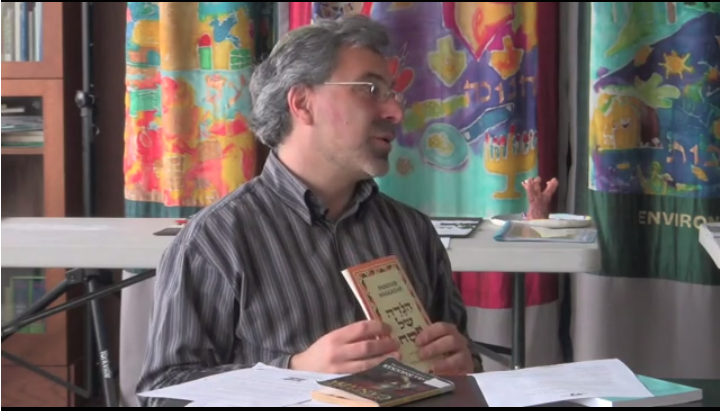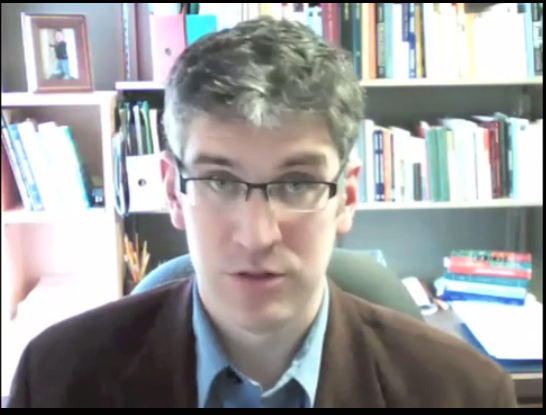 Mr. Greg Beiles, Toronto, Canada
Mr. Greg Beiles, Toronto, Canada
Assalamualaikum WBT.
Dr. Seema and colleagues, brothers and sisters.
1. BENEFITS FOR ISLAMIC SCHOOLS
Firstly, the two videos gave us a good understanding on what is going on in other faith based schools. In a country like Malaysia, we do not have Jewish School, a very few Catholic schools and no known Hindu or Buddhist school, which I would like to dig deeper. When we think of people from other faiths, we tend to think that everyone is against each other, especially when the perception is dominated by politics. But through education, it is clearly demonstrated that people of different faiths are working on self empowerment and learning how to become a good member of society and contribute. This is an important and strong message for Islamic schools like ours.
2. THE CURRICULUM MAPPING
Another thing, I want to think that the two videos are only at the introductory level because I feel like the explanations are not deep enough to understand the philosophy behind the integration. More or less, they are initiated at micro level and we do not hear they refer to certain Jewish or Catholic scholars in education who perhaps did their research on this matter at the philosophical level. So, I am not sure if the explanations given by Mr. Greg Beiles and Dr. Graham McDonough represent Jewish and Catholic modules of curriculum as a whole. As expressed by Mr. Greg Beiles, the integration, at least in Toronto, it is still considered as a new thing.
Mr. Beiles mentioned that the methodological level to extract concepts like freedom from Jewish tradition and distinguish it from a universal version of freedom, it not easy. When the teaching relates the story of the Jewish migration from Egypt with the experience of the American slaves escaped to Canada and how that can be understand from a Jewish Studies perspective, it raises a question to me. In Jewish Studies, why they want to integrate? What is the motive? Is it because of the external motives like wanting to make the religious studies relevant, or is it because of the internal motives, i.e. the Jewish faith itself requires integration?
As a comparison, in Islamic Studies, at the methodological level, to relate something with something represented by the concept of ‘ibrah (عبرة). The word ‘ibrah means to connect something with something. When Allah concluded the story of Prophet Yusuf ‘alayh al-salām, He said,
“There was certainly in their stories ‘IBRAH for those of understanding. Never was the Qur’an a narration invented, but a confirmation of what was before it and a detailed explanation of all things and guidance and mercy for a people who believe.”[Q12:111]
The word ‘ibrah is commonly translated into ‘lesson’. But the word itself in Arabic, semantically speaking requires us to relate the story of Yusuf with ourselves. If we see the story of Yusuf only as the story of people who used to live in Egypt and part of Palestine, we have not reach the learning objective. So in this case, integration is not because of external motives but the faith requires us to make the connection as a form of integration. It becomes a foundation in learning History.

Dr. Graham McDonough, Toronto, Canada
I had difficulties to understand the second video with Dr. Graham McDonough because the sound quality is not very good. I had to listen to it several times to get the main points Dr. Graham McDonough expressed in his session.
Dr. Graham McDonough opened his session with the idea that school as a formal educational institution is a culture rather than a Catholic tradition. It triggered us to also explore how was education during the early years of Muslims. From an informal form of teaching and learning, to the emergence of Madrasah, understanding the differences between form and substance can help us to maintain the dynamism in our contemporary Islamic education; knowing what to add, what to keep and what to leave.
What caught my attention the most, is the emphasization to begin the learning with cognitive studies in Catholic schools. This is unique and I wish the cognitive is specifically trained at the very early stage of education. We work on this issue in our school and my son is now studying in a school where the first 6 months of their schooling, they restrict the learning only to language proficiency (English and Arabic), plus memorization of the Quran and cognitive. The endangered mind of current students, mainly caused by early exposure to ‘screen literature’ like television, computer, tablet and smartphone somehow caused the students to experience some learning difficulties. They do not have problem with Maths and Science. But they have serious problems with subjects that require thinking, articulation, analysis. If this issue is left untreated it might lead to many forms of cognitive dissonance. I would love to see how the Catholic Schools work on this issue, as well as other Islamic schools among the ITEP colleagues.
Understanding the Jewish and Catholic schools’ effort on developing their curriculum, strengthen what Abu al-Hasan ‘Ali al-Nadwi’s view on the impact of materialism on faith (Tafsir Surah al-Kahf). Materialism disconnects physical, emotional, and intellectual aspects of life from spirituality. Not only Islam, even other faiths are facing this major challenge too.
A holistic integration between the mandated curriculum with Islam, is a huge responsibility that educationists must take it as a form of jihad.
HASRIZAL
Malaysia
Assalamualaikum Ustaz, may I suggest that we teach the children how to read a book. I got a book titled “How to read a book” in which the two authors outlined what makes the difference between normal reading and reading that is deeper that requires more thinking on the part of the reader. However, it is not as instructive as it sounds and will need a certain length of time to digest and properly practice the techniques as mentioned in the book.
Assalamu’alaikum Ustaz,
Have you come acrross Little ‘abd program (LAP)? In the syllabus, they have attempted to integrate the tawhid in each subject. However, this program only meant for pre-school based on Surah Al-Fatihah.
http://littleabdprogramme.com.my/